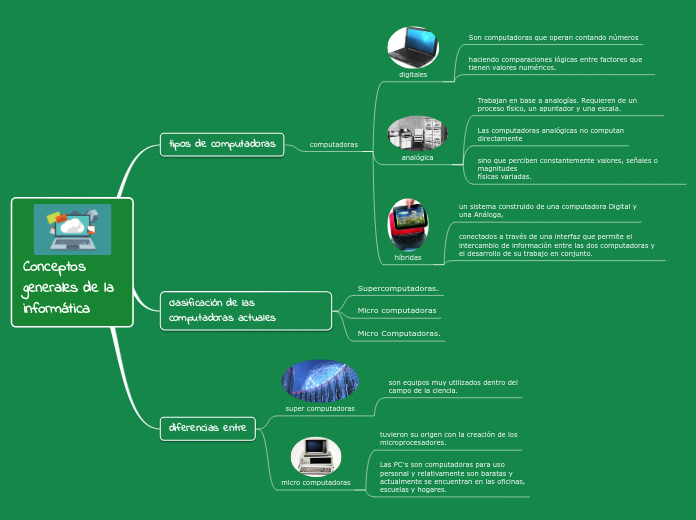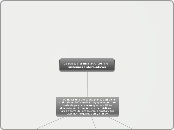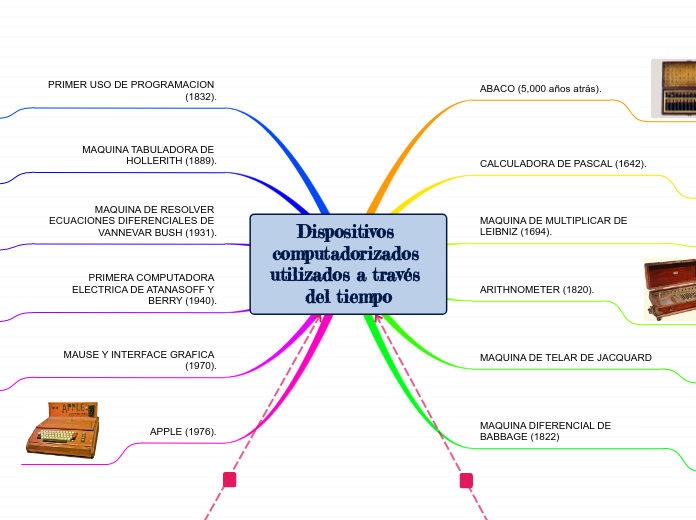Conceptos generales de la informática
To name your story, you have to think about the overall message and what you want your audience to understand from the story. Also, make it relevant and easy to remember.
diferencias entre
The ending of a story is essential. We all know that if the ending is weak, what happened before loses its importance. So make it unpredictable, but fair. A resolved ending answers all the questions and ties up any loose threads from the plot.
micro computadoras
This is the closure section of the story.
See examples of possible outcomes below:
- all problems have been solved
- it's clear how each one of your characters ends up
- your main character is transformed by the challenge
Las PC ́s son computadoras para uso
personal y relativamente son baratas y
actualmente se encuentran en las oficinas,
escuelas y hogares.
tuvieron su origen con la creación de los
microprocesadores.
Try answering these questions to come up with a closure:
- Have all the problems been solved?
- Is there a clear picture of what happens with each character in the story?
- Has the challenge transformed your main character?
- How do the characters feel in the end?
super computadoras
This is the moment when the main character surpasses the last obstacle and finally faces their greatest challenge.
The climax usually follows one of these patterns:
- realization
- resolution
- choice
Type in your answer.
son equipos muy utilizados dentro del
campo de la ciencia.
clasificación de las computadoras actuales
The middle of the story is where you add layers of complications that will lead to the end. Reveal more about the character's journey. Did their personality go through changes? How did they overcome the challenges? And as you build up the story’s central conflict, make it more personal to that character. Also, from the middle act, you have to lead into the final act.
Micro Computadoras.
There wouldn't be any tension and excitement in your story if there weren't any obstacles in your character's way.
Micro computadoras
Your character(s) need(s) motivation in order to solve the challenge(s).
Supercomputadoras.
Each story has a main character and that character usually needs to solve a problem or challenge. The character's challenge is the one that creates tension throughout the story.
tipos de computadoras
In the beginning of the story (or the exposition), you will need to introduce the setting and characters. You might also want to introduce the main conflict. This part of the story is important because it gives the reader necessary background information and maybe even a first insight into a character’s personality.
computadoras
The setting (time & place) of a story can change throughout the plot.
híbridas
Sensory details include sight, sound, touch, smell, and taste. These details are important because they create depth in your setting.
See a few examples below:
- the smell of fresh bread
- the scent of freshly cut grass
- rain falling onto the windshield etc.
conectados a través de una interfaz que permite el intercambio de información entre las dos computadoras y el desarrollo de su trabajo en conjunto.
un sistema construido de una computadora Digital y
una Análoga,
analógica
The weather is an important element in your story because it can highly influence the ambiance and the mood of the characters.
sino que perciben constantemente valores, señales o magnitudes
físicas variadas.
The most affected character is the main character. Write down here if he/she is affected by these weather conditions in any way. For example, if they lost a family member or their home during a hurricane, etc.
Las computadoras analógicas no computan
directamente
Decide if you want to include an element of nature in your story. For example, a rainbow can be a very nice choice for a happy ending. The mist in a story can represent mystery and secrets. A thunder can appear in the background at the moment when the 'bad guy' of the story makes its appearance, etc.
Trabajan en base a analogías. Requieren de un proceso físico, un apuntador y una escala.
Does your story include catastrophic weather? See a few suggestions below or add your own:
- hurricane, earthquake, storm, etc
digitales
The time of the story can also change. It can describe the event of a single day or can include an entire year's plot. Anyway, don't forget to mention it.
haciendo comparaciones lógicas entre factores que tienen valores numéricos.
Son computadoras que operan contando números










